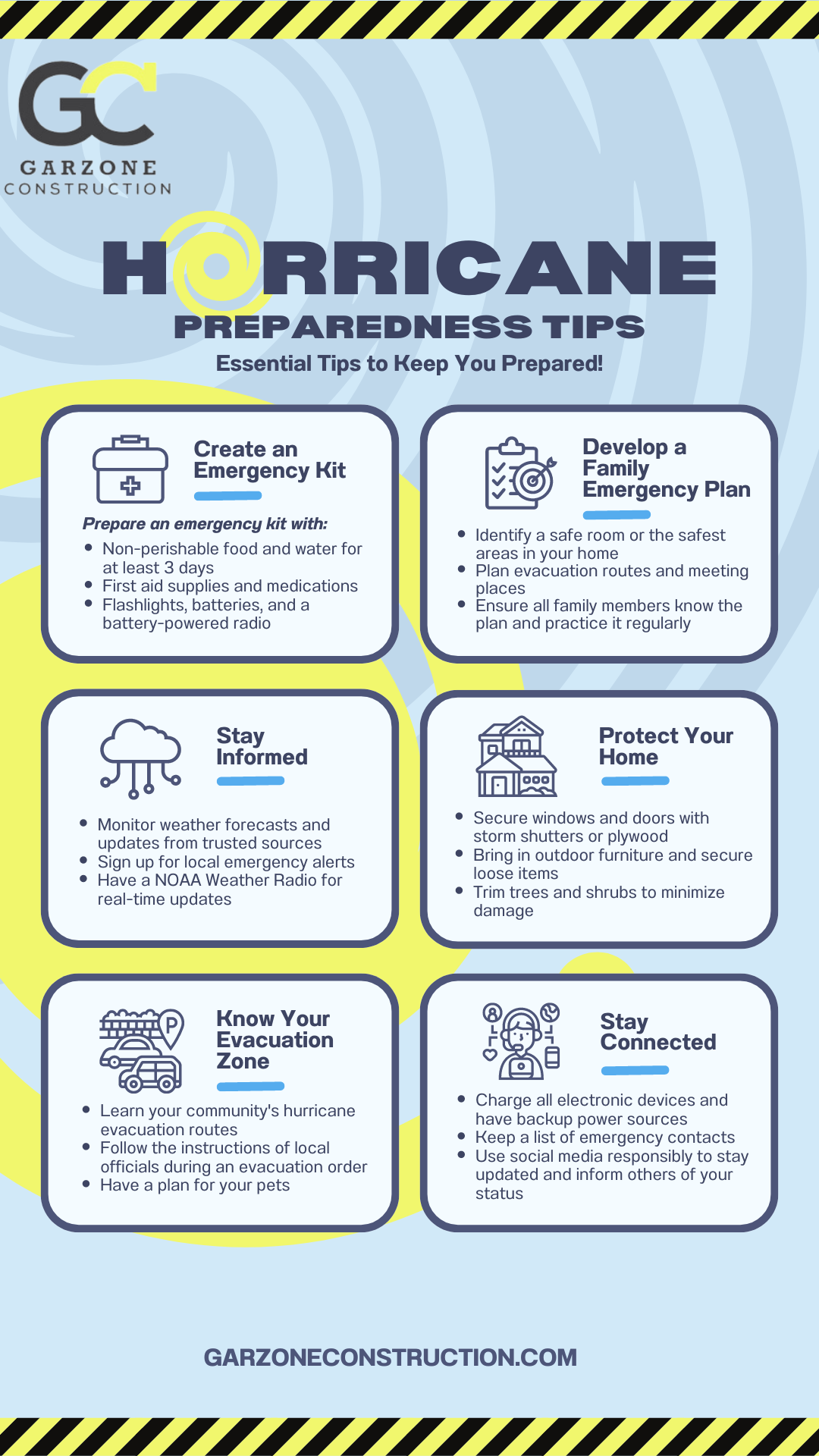
Florida is no stranger to hurricanes, and being prepared is essential to ensure your safety and minimize damage. Here’s a comprehensive guide to hurricane preparedness in Florida, covering essential steps to take before, during, and after a storm.
Before the Storm
- Develop an Evacuation Plan: Determine your evacuation route and designate a safe location outside your area. Make arrangements for your pets.
- Assemble a Disaster Supply Kit: Gather essential supplies, including:
- Non-perishable food and water for at least 3 days
- First aid kit
- Flashlights and batteries
- A battery-powered radio
- A manual can opener
- Important documents (insurance policies, identification, etc.)
- A change of clothes for each family member
- A map of your evacuation route
- Secure Your Home:
- Bring in outdoor furniture, decorations, and loose objects.
- Secure any loose items around your property, such as shutters, awnings, and patio furniture.
- Trim trees and branches that could pose a danger.
- Protect windows and doors with hurricane shutters or plywood.
- Prepare Your Vehicle:
- Fill your gas tank and keep your vehicle in good working condition.
- Have a car emergency kit ready, including jumper cables, a flashlight, and a first aid kit.
During the Storm
- Stay Informed: Monitor weather updates and follow evacuation orders.
- Seek Shelter: If ordered to evacuate, do so immediately. If you choose to shelter in place, go to a designated safe room or an interior room without windows.
- Stay Away from Windows: Avoid looking out of windows or doors during the storm.
- Unplug Electronics: Unplug all electronics to prevent damage from power surges.
After the Storm
- Assess Damage: Check for structural damage and safety hazards.
- Document Damage: Take photos of any damage to your property for insurance purposes.
- Avoid Contaminated Water: Do not drink or use tap water until it has been declared safe.
- Dispose of Debris Safely: Follow local guidelines for debris removal.
- Contact Your Insurance Company: Report any damage to your insurance provider.
Additional Tips:
- Sign up for emergency alerts: Register for local emergency alerts to receive timely updates and instructions.
- Practice your evacuation plan: Conduct regular drills to ensure everyone in your household knows what to do in case of an emergency.
- Stay informed about hurricane preparedness resources: Visit the websites of the National Hurricane Center and your local emergency management agency for valuable information.
By following these guidelines, you can significantly increase your chances of staying safe and minimizing damage during a hurricane. Remember, preparation is key!
